When Matthew Vines burst onto the evangelical scene in 2012, he could have become another one-hit wonder of viral videos. A YouTube video of the 21-year-old outlining a scriptural defense of monogamous, Christ-centered same-sex relationships showed up on LGBT blogs and Facebook timelines all over.
Since then, he has established The Reformation Project, an organization aimed to change Christians minds on same-sex relationships, and he's published God and the Gay Christian: The Biblical Case in Support of Same-Sex Relationships. Three years later, Vines is an emerging voice in Christian conversations on the intersections of faith, gender, and sexuality.
When I met Vines in the beginning of this venture with The Reformation Project, he was eager, albeit a bit naive. He wanted to change the world equipped only with theology that affirmed same-sex relationships.
"In 10-15 years, I want to change 2 billion Christians' minds on same-sex relationships," I once heard him say.
While his goals haven't changed, the timeline has -- and so have his methods.
The Reformation Project recently hosted its fourth conference in about a year, bringing in around 250 Christians from across the country for three days of networking and training in Kansas City.
"This conference [in Kansas City] was the most refined effort yet," Vines told The Advocate on the recent conference. (In full disclosure, the writer presented a workshop on bisexuality at said conference.) "When we did our first one, I did most all of it myself. I didn't have any full-time staff members. I had to fundraise, get the word out, and plan the conference -- all while writing my book. As of this month, we have trained about 1,000 people over the last two years on affirming theology on same-sex relationships."
Lucky for him, Vines isn't alone anymore. His staff of four work like a small army to produce The Reformation Project's application-only leadership cohorts and conferences. The leadership cohorts invite 30 to 50 carefully selected "reformers" for a three-month intensive training in theology affirming same-sex relationships. The reformers work in an online community studying theological arguments for and against same-sex relationships. Together, they interact in weekly forums discussing the readings. The intensive is finished with a four-day power summit bringing together Vines and leading theologians.
The conferences, on the other hand, are open to the general public sans application process. While less intensive, the three-day conference gives an overview of arguments affirming same-sex relationships.
To date, The Reformation Project has hosted leadership cohorts in Kansas City and Washington D.C., and larger conferences in Kansas City, Washington D.C., and Atlanta. The Reformation Project is gearing up for its next cohort in Atlanta in April and a national conference in Long Beach, Calif. in October.
The conferences and cohorts have been successful in part by the funding the project has received -- both from secular and religious groups. Notably, The Reformation Project has secured grants from the Arcus Foundation and the Gill Foundation, two leading LGBT funding groups, as well as both religious and non-religious private funders.
"We're maturing beyond our start-up phase as an organization and building for the long term," Vines told The Advocate. "We do not expect to see massive shifts in Christianity or evangelicalism in the near future. But we know that major changes are possible over time. We want to fundamentally shift the trajectory of where the church lands on this issue. "
Just a few years ago, these lofty goals were the furthest thing from Vines's mind. He grew up in Wichita, Kan. in a well-off home entrenched in evangelical culture. He enrolled in Harvard in 2008, eventually majoring in philosophy. By his sophomore year, Vines realized he was gay and took the following semester off to go home and come out to his family.
Vines's family wasn't particularly "thrilled" when he came out. Yet, they were loving all the same. Together, they agreed to undergo a bible study on the theology behind same-sex relationships. They challeneged each other and read everything they could get their hands on the subject. It was a process. Together, they came to the conclusion that same-sex relationships -- in the way we understand them today -- weren't condemned in scripture.
With the success of his YouTube video, Vines quickly became a figure in the evangelical world. How did he gain so much influence so quickly? Vines walks, and talks, the evangelical culture.
"I start off in a privileged position as a white, cisgender, upper-middle class, Christian male," Vines said. "If you were to change any one of those things, the obstacles I would have to overcome would only grow larger. I think the time is also increasingly right for conversations like this, in large part because the secular culture isn't debating this anymore. If I had entered this conversation 15 years ago I don't think I would've had the same success."
Indeed, his influence is partly due to a societal shift in the LGBT community, but also because Vines is an evangelical through and through. There have been others who have proposed affirming theological arguments who have been dismissed due to their dissenting beliefs on other aspects of Christian doctrine. In reality, Vines is fairly conservative and, aside from theology on same-sex relationships, agrees with much of what his naysayers believe.
"I learned theology and the Bible from evangelicals. There's a uniquely evangelical way of reading scripture that I'm well versed in," Vines said. "Most of the affirming resources that I found early on in my journey didn't come from the same background. For evangelicals, it's critical to uphold the full authority of Scripture, including the letters of Paul, and to take ever verse extremely seriously."
A year before Vines published his book, evangelical theologian James Brownson published Bible, Gender, and Sexuality: Reframing the Church's Debate on Same-Sex Relationship. Unlike Vines, Brownson offered a new way of looking at the traditional "clobber texts" by deconstructing the lens through which we interpret them. Brownson argues the Bible does not teach a normative doctine of "gender complementarity," which evangelicals use as the foundation to argue against same-sex relationships. While Brownson's work has been hugely impactful, both to the evangelical community and to Vines himself, it hasn't reached the same level of notoriety as Vines's. The gay theologian was able to package affirming theology on same-sex relationships in a way that's easy for lay people to understand. Where other books, including Brownson's, are theologically dense, Vines includes all the necessary theology but says it in ways those in the pews can understand -- and it's working.
"I have met with dozens of evangelical leaders and pastors who do not agree with me to talk through the content in the book," Vines said of off-the-record closed door meetings.
Last summer, The New York Times featured Vines on its front page, reporting on one of many closed-door meetings he has had with evangelical leaders across the country. Some of those leaders, Vines told me, are changing their minds about same-sex relationships. Most, at the very least, agree the church's treatment of LGBT people has caused a lot of damage.
Not all evangelical leaders are eager to break bread with Vines. Even those who attempt to write off Vines as a young, heretical, non-theologian feel the need to respond to his work. If Vines were not as much of a threat as the evangelical gatekeepers claim, they wouldn't feel the need to respond to him. Yet, they do.
Shortly after Vines published God and the Gay Christian, Albert Mohler, President of the Southern Baptist Theological Seminary, published a 96 page e-book rebuttal. James White, professor at Columbia Evangelical Seminary, responded to Vines's one-hour YouTube video with a five-hour podcast. Most recently, leading pastor Tim Keller reviewed Vines's book.
"His engagement of my argument was not very substantive," Vines said about Keller's review. Even noted anti-LGBT scholar Robert Gagnon has taken to his social media accounts to dismiss Vines's work.
For some of these individuals, Vines' responds on his website. For others, he doesn't even bother.
"I am much more likely to engage people if they are not foaming at the mouth," Vines said. "If someone is basically ranting and raving and yelling about the book, I don't think engaging them is the best use of my energy. Some people are not interested in having a meaningful conversation."
A recent Pew Research report shows that almost all Christian groups have grown in their acceptance of homosexuality. When age is accounted for, millenials showed much more acceptance for homosexuality than previous generations. There has also been an increase of LGBT people who identify as Christian, emphasizing just how important Vines, and The Reformation Project, is to the LGBT community.
"We plan to begin to have targeted programs for specific churches," Vines said. "In addition to our cohorts and conferences, we'll be creating trainings around the country targeted to specific denominations or churches that are interested in engaging affirming theology. In this last year, we've seen more evangelical churches and leaders become LGBT affirming. They're currently the outliers, but in time, we know we can change that."
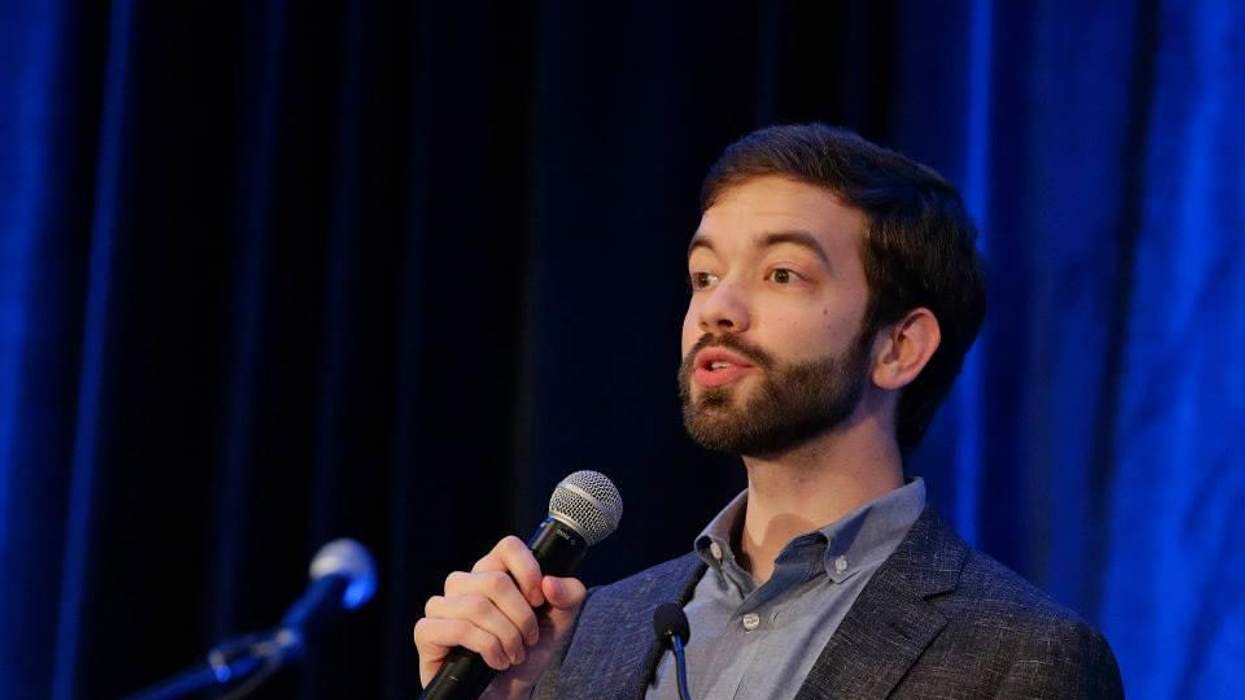
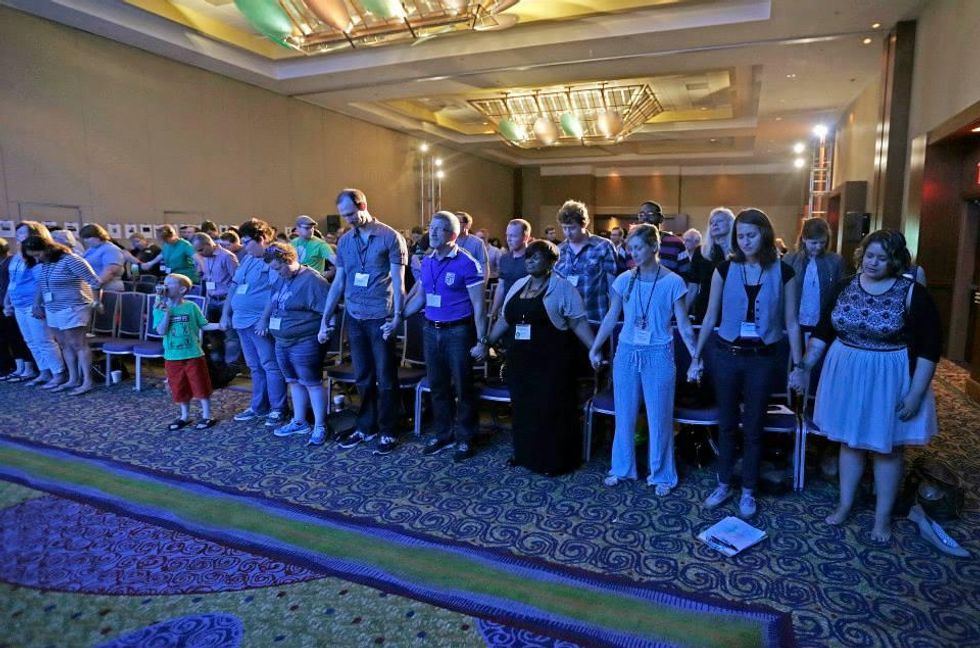
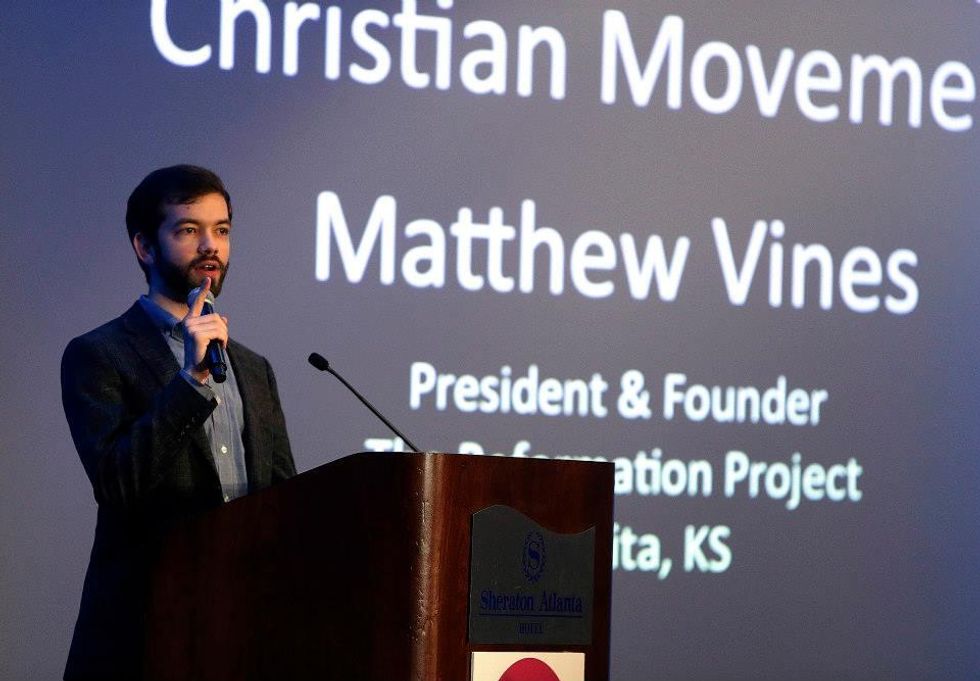
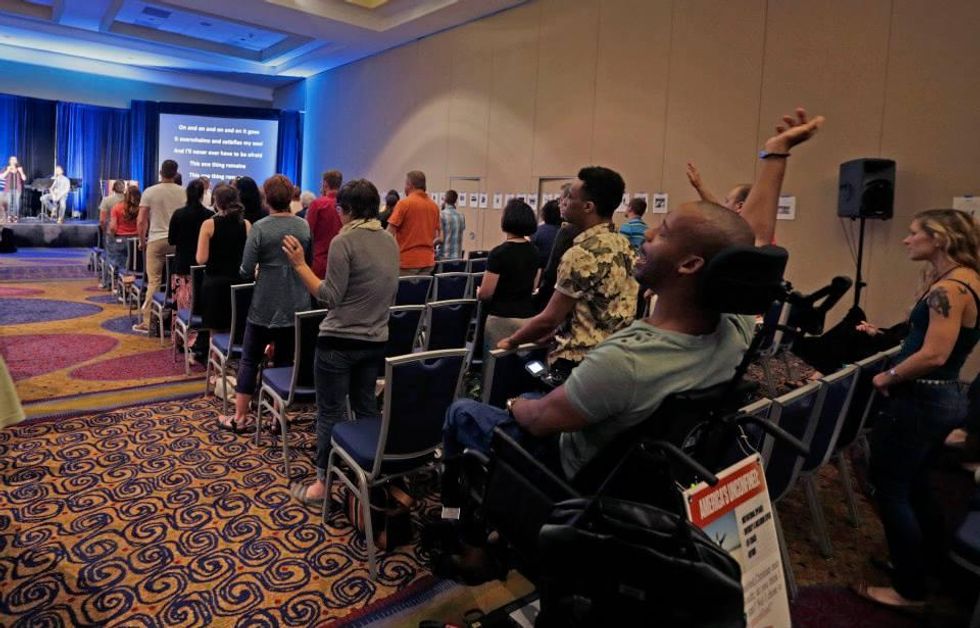







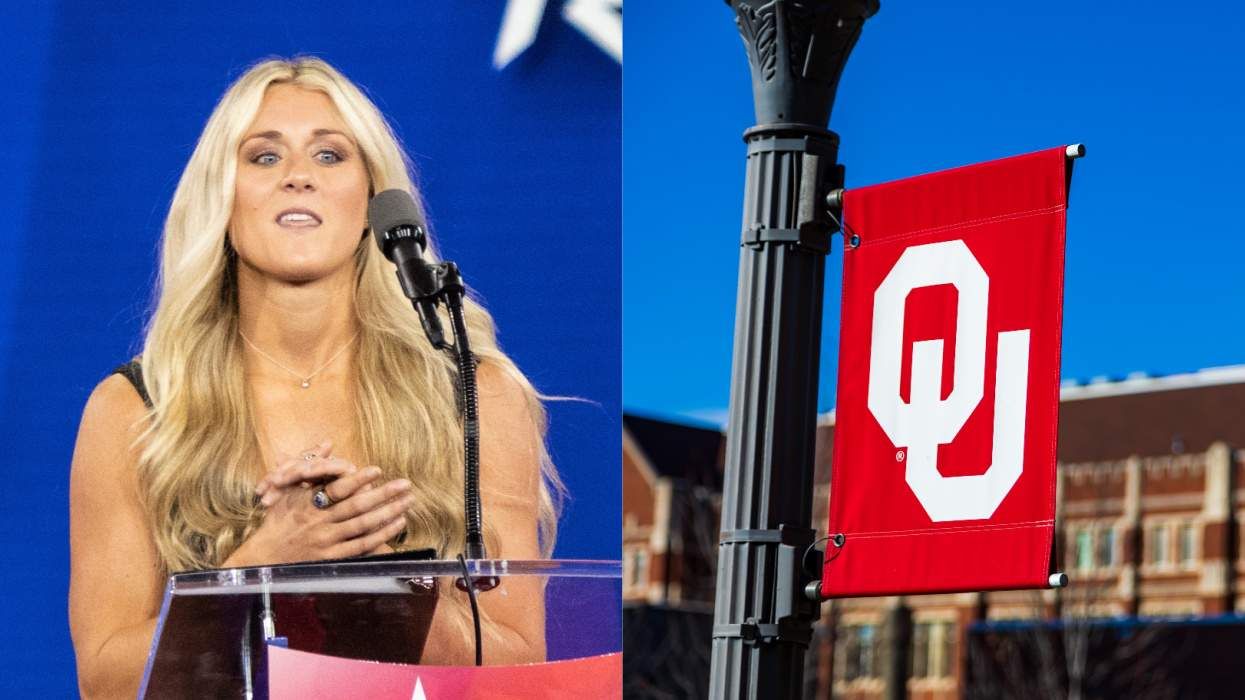






Charlie Kirk DID say stoning gay people was the 'perfect law' — and these other heinous quotes
These are some of his worst comments about LGBTQ+ people made by Charlie Kirk.